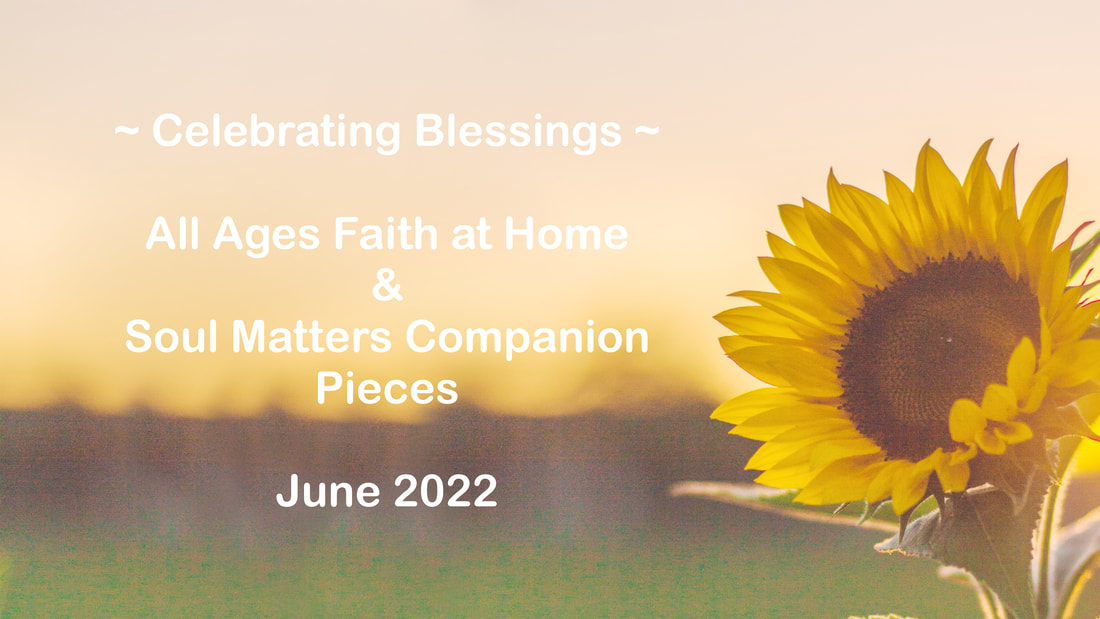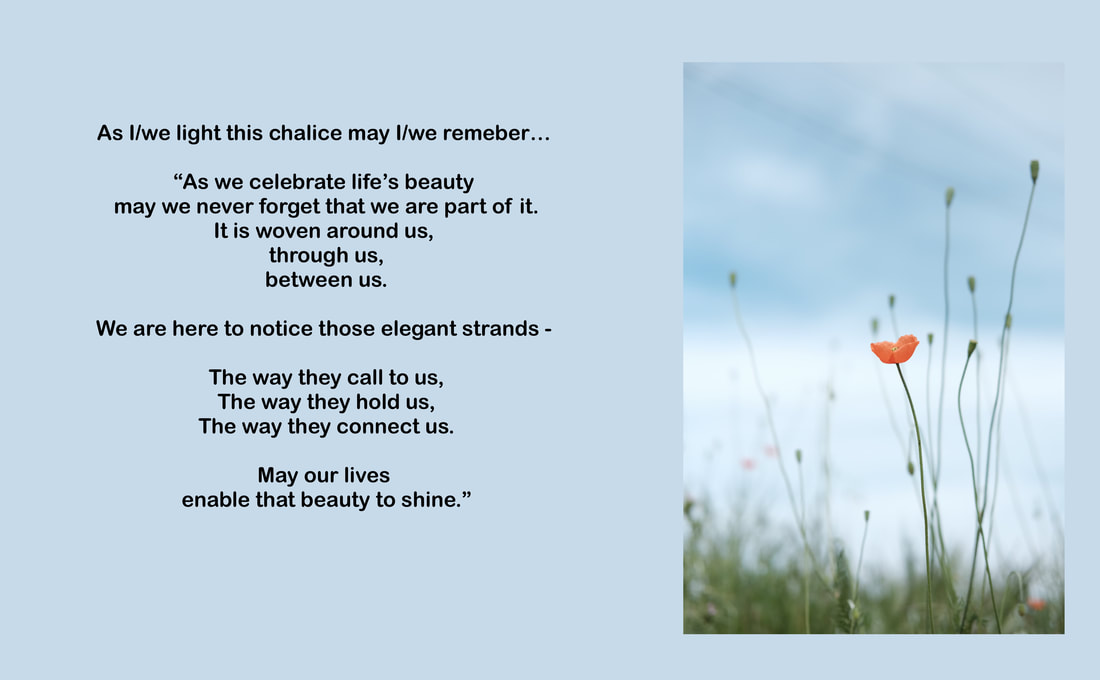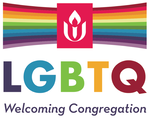ALL AGES Faith at Home: Awakening
Our spiritual theme for the month of June is Celebrating Blessings! Here are a few suggestions on how kids, youth, and adults can incorporate this theme individually, as a family or with friends into their daily lives as they actively live into our shared faith.
Friends and/or Family Movie Night
Snuggle up this month and watch some of the moves below. Each one lifts up to our theme of Nurturing Beauty in a different way (click each title to see the movie trailer). As you watch be sure to look for the things that make the movie beautiful for you and take some time to chat about it with those you watched with.
Conversations Starters and Journal Prompts: Remind Yourself that You are Pretty ______!
Family/Friend Actives
Book List
From Board Books to Adult Novels we invite you to check out this is a fantastic list of books for the Justice and Diversity Library. This month the list is full of amazing books with a specific focus on Pride Month. We inviter you all to read one, a few, or all as you continue to dive into and explore this months theme of Nurturing the Beauty!
Chalice Lighting
Spiritual practice is crucial for kids, youth, and adults!! Lighting a chalice at home is a beautiful way to live into our faith and help your children feel grounded in spiritual practice. This week try lighting a family chalice at dinner or bedtime, or whenever makes sense for your family.
Snuggle up this month and watch some of the moves below. Each one lifts up to our theme of Nurturing Beauty in a different way (click each title to see the movie trailer). As you watch be sure to look for the things that make the movie beautiful for you and take some time to chat about it with those you watched with.
- The Prince of Egypt (PG)
- Field of Dreams (PG)
- This Beautiful Fantastic (PG-13)
Conversations Starters and Journal Prompts: Remind Yourself that You are Pretty ______!
Family/Friend Actives
Book List
From Board Books to Adult Novels we invite you to check out this is a fantastic list of books for the Justice and Diversity Library. This month the list is full of amazing books with a specific focus on Pride Month. We inviter you all to read one, a few, or all as you continue to dive into and explore this months theme of Nurturing the Beauty!
Chalice Lighting
Spiritual practice is crucial for kids, youth, and adults!! Lighting a chalice at home is a beautiful way to live into our faith and help your children feel grounded in spiritual practice. This week try lighting a family chalice at dinner or bedtime, or whenever makes sense for your family.
Soul Matters Adult Companion Pieces
Resources for Personal Exploration & Reflection
The following resources are here to companion you on your journey this month, get you thinking and open you up to new ways of imagining the spiritual practice of Nurturing Beauty.
|
Word Roots & Definitions
The Greek word for the beautiful is kalon, “which is related to the word kalein, which includes the notion of ‘call.’ Suggesting that there is something about beauty, wherever we find it, that tugs at us, pulls at us, draws us into the divine.” A second Greek word for beauty is hōraios, from hōra, meaning "hour." Beauty was thus associated with "being of one's hour". Thus, a ripe fruit (of its time) was considered beautiful, whereas a young person trying to appear older or an older person trying to appear younger would not be considered beautiful. Wise Words Beauty is that which glistens on the edges of our yearnings and lures us into the depths of things. - Patricia Adams Farmer When we approach with reverence great things decide to approach us. When we walk on the earth with reverence, beauty will decide to trust us. The rushed heart and the arrogant mind lack the gentleness and patience to enter that embrace. Beauty is mysterious, a slow presence who waits for the ready, expectant heart. - John O’Donohue Under the spell of beauty, we experience a rare condition called plenitude, where we want for nothing. -André Aciman Beauty isn’t all about just nice loveliness. Beauty is about more rounded, substantial becoming. So I think beauty, in that sense, is about an emerging fullness. - John O’Donohue At some point in life the world’s beauty becomes enough. You don’t need to photograph, paint or even remember it. It is enough. No record of it needs to be kept and you don’t need someone to share it with or tell it to. - Toni Morrison in Tar Baby This a wonderful day. I've never seen this one before. - Maya Angelou Beauty always has rules. It’s a game. I resent the beauty game when I see it controlled by people who grab fortunes from it and don’t care who they hurt. I hate it when I see it making people so selfdissatisfied that they starve and deform and poison themselves. - Ursula K. Le Guin Music Here’s our playlist for this month. It’s organized as a journey of sorts, so consider listening from beginning to end and using the playlist as a musical meditation. Click here for the YouTube playlist on Nurturing Beauty. Click here for all the YouTube playlists. |
Books & Articles
Nature’s Beauty as a Gateway into Deep Time and a Lens on the Interconnectedness of the Universe - Maria Popova “Standing amid the rainforest — a place governed by the beauty of interrelation — Sacks reflects: ‘The sense of deep time brings a deep peace with it, a detachment from the timescale, the urgencies, of daily life… a profound sense of being at home, a sort of companionship with the earth.’” Ugly: How Beauty was Built upon White Supremacy - Vanessa Rochelle Lewis “In this essay for #BodyPositivityInColor, Vanessa Rochelle Lewis explores the concept of “ugly” and how it depends on white supremacist, colonialist, cisheteronormative, misogynistic, and ableist constructs of what defines beauty. She explores these ideas through history and how it exists and thrives within our current society.” Old In Art School: A Memoir of Starting Over by Nell Irvin Painter "Painter claims her birthright as an artist, a black woman, and a woman of a certain age at a time and in a cultural milieu that ignores all three." ―CNN "Shows how being an 'artist' is more about designing your life, defying the kind of giving up that retiring sometimes implies." ―Hyperallergic Six Names of Beauty by Crispin Sartwell “In this elegant, witty, and ultimately profound meditation on what is beautiful, Crispin Sartwell begins with six words [meaning beauty] from six different cultures… Each word becomes a door onto another way of thinking about, and looking at, what is beautiful in the world, and in our lives… Wayward by Dana Spiotta “When Sam falls in love with a beautiful, decrepit house on the wrong side of town, she buys it on a whim and flees her suburban life - and her family - in an attempt to find beauty in the ruins…” Videos & Podcasts The Inner Landscape of Beauty - John O’Donohue: On Being Podcast “No conversation we've ever done has been more beloved than this one. The Irish poet, theologian, and philosopher insisted on beauty as a human calling…” How Beauty Can Heal Us - Jason Silva A meditation on the soul-shaking, heart-stirring power of beauty. You become what you behold. So choose carefully what you behold. Chase beauty friends, so you become it. Reclaiming UGLY as an Act of Queer Pleasure A must listen! The Body Is Not An Apology - Sonya Renee Taylor Lean into the blessing, beauty, and divinity of your body… Video Interviews - What is One Thing You Want to Change About Your Body? On our relationship with our bodies, before and after culture takes hold... Youth React to Being Called Beautiful |



